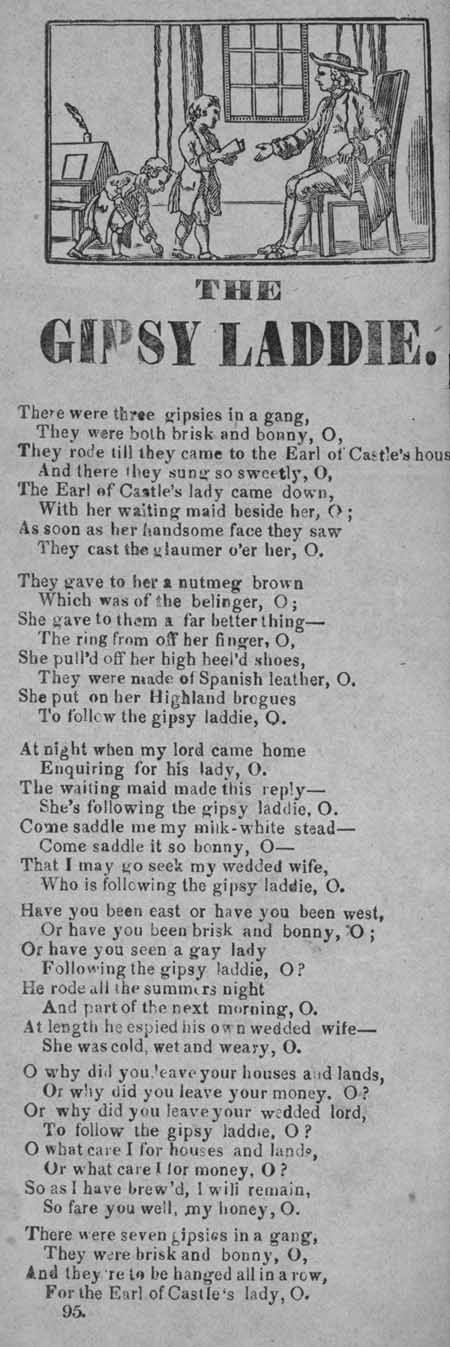Transcription
THE GIPSY LADDIE. There were three gipsies in a gang, .
They were both brisk and bonny, O,
They rode till they came to the Earl of Castle's house
And there they sung so sweetly, O,
The Earl of Castle's lady came down,
With her waiting maid beside her, O ;
As soon as her handsome face they saw
They cast the glaumer o'er her, O. They gave to her a nutmeg brown
Which was of the belinger, O ;
She gave to them a far better thing?
The ring from off her finger, O,
She pull'd off her high heel'd shoes,
They were made of Spanish leather, O.
She put on her Highland brogues
To follow the gipsy laddie, O. At night when my lord came home
Enquiring for his lady, O.
The waiting maid made this reply?
She's following the gipsy laddie, O.
Come saddle me my milk-white stead?
Come saddle it so bonny, O?
That I may go seek my wedded wife,
Who is following the gipsy laddie, O. Have you been east or have you been west,
Or have you been brisk and bonny, O ;
Or have you seen a gay lady
Following the gipsy laddie, O?
He rode all the summers night
And part of the next morning, O.
At length he espied his own wedded wife?
She was cold, wet and weary, O. O why did you leave your houses and lands,
Or why did you leave your money, O?
Or why did you leave your wedded lord,
To follow the gipsy laddie, O ?
O what care I for houses and lands,
Or what care I lor money, O ?
So as I have brew'd, I will remain,
So fare you well, my honey, O. There were seven gipsies in a gang,
They were brisk and bonny, O,
And they're to be hanged all in a row,
For the Earl of Castle's lady, O.
95.
View Commentary | Download PDF Facsimile
|
 |
Probable period of publication:
1860-1890 shelfmark: L.C.Fol.178.A.2(092)
 View larger image
View larger image
|


